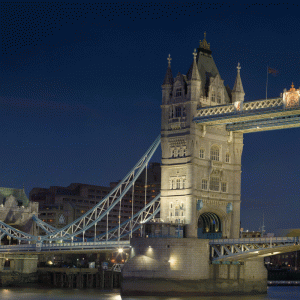London Bridge attack kills 7
On Saturday, June 3rd, three men, identified as Youssef Zaghba, 22, Khuram Butt, 27, and Rachid Redouance, 30, drove a rented van into pedestrians on the London Bridge and then attacked people at the bars and restaurants in London’s Borough Market with knives. Seven people were killed in the attack, and dozens were injured, including four police officers. As of Monday, June 5, all 36 of the individuals admitted to the hospital were still receiving care, but the number of those in critical care had fallen to 18. One of the injured included an American who was hit by a stray bullet fired by the police. All three of the men were shot and killed by police within 8 minutes of the attack commencing.

After the issues with intelligence leaks following May’s Manchester bombing, British authorities delayed releasing the names of the three attackers until the Tuesday after the attack. Twelve people have been detained by the police as they conduct raids and investigate the possibility of a larger network, but by Tuesday, June 6, they had all been released. ISIS has claimed responsibility, but this has not yet been confirmed. London mayor Sadiq Khan and Metropolitan police commander Mak Chishty have both made statements condemning the attacks, and calling on the community at large as well as the Muslim community to fight against extremism.
This attack comes just days before Britain’s election for prime minister, and as such, it has been highly politicized. In the immediate aftermath of the attack, official campaign events were suspended, though statements and political rhetoric likely amounted to indirect campaigning. Her opponent, Jeremy Corbyn has criticized current PM Theresa May’s cuts to the Metropolitan police as being a contributing factor to this attack, though he maintained that the only people to blame are the individuals who carried it out. He has promised to hire 10,000 more police officers if elected. This has been especially contentious given that one of the attackers was previously stopped in an airport in Italy with ISIS related material on his phone, raising questions about security holes in Britain and interagency communication across the European Union.
Terrorism is not a new phenomenon for London; conflict with the IRA resulted in similar terrorist incidents, ranging from the 1970s to the 1990s. This attack followed the Manchester bombing at a concert in late May, as well as a similar attack in March when British citizen, Khalid Masood drove a car across the Westminster Bridge into pedestrians, before attacking a police officer with a knife. As such, concrete barriers are being put up on London’s major bridges as part of a police effort to prevent similar future attacks. As after these other attacks, Londoners have been priding themselves on remaining resilient in the face of terror, the World War II slogan “Keep calm and carry on” trending on twitter in the days following. Rather than focusing on fear, residents have been reaching out and offering help to those who need it and focusing on bring people together. GRI Director Stephen Flynn recently spoke with Jason Kornwitz of News@Northeastern, saying that societal resilience in the face of terror attacks can contribute to a quicker, more effective recovery and lower the incentive for future attacks.
Sources and Further Reading:
A poised yet angry Britain heads towards election as police carry out new raids – The Washington Post
London Bridge Attack: American Hit in Head by Police Bullet, Witness says – NBC News
London attack: Corbyn says May should resign over police funding record – latest updates – The Guardian
London Bridge attack: 11 detained after raids, attackers to be named – CNN
London attack: Third London Bridge attacker named – BBC News
UK police face questions over London attack as third suspect named – CNN
A Very British Response to Terror – The New York Times
Londoners get #KeepCalmAndCarryOn trending in show of defiant ‘Blitz spirit’ – Metro
Bombing at Concert in Manchester Kills 22 – Global Resilience Institute
Attack Outside the London House of Parliament – Global Resilience Institute
London Isn’t Burning: How Britain’s History With the IRA Made It Resilient In the Face of Attack – Newsweek
